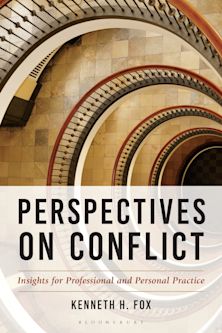- Home
- ACADEMIC
- Politics & International Relations
- Politics - Other
- Christianity and Civil Society
Christianity and Civil Society
Catholic and Neo-Calvinist Perspectives
Christianity and Civil Society
Catholic and Neo-Calvinist Perspectives
This product is usually dispatched within 1 week
- Delivery and returns info
-
Free CA delivery on orders $40 or over
You must sign in to add this item to your wishlist. Please sign in or create an account
Description
Christianity and Civil Society responds to the crisis of American democracy as perceived by such diverse thinkers as Christopher Lasch, Michael Sandel, Mary Ann Glendon, and Robert Putnam. Despite their philosophical differences, these thinkers highlight a common theme: a decline in the institutions of civil society once held to be the vital center of the American polity. In place of these institutions-such as the family, neighborhood, church, and civic associations-one finds a disturbingly reduced socio-political stage, dominated by an abstract triumvirate of the individual, state, and market as prime actors.
Whether taking their inspiration from the political theology of St. Thomas Aquinas and papal encyclicals or from John Calvin and his heirs in the Reformed traditions, the authors assembled here find the doctrinal resources of Christianity indispensable to defending the irreducible identity and value of the social institutions that serve as the connective tissue of a political community. By drawing upon a treasury of social thought little known to most Americans, Christianity and Civil Society offers a fresh vantage point from which to assess the crisis of our polity as well as the best prospects for its renewal.
Table of Contents
Chapter 2 Introduction
Chapter 3 Chapter One: "Social Pluralism and Subsidiarity in Catholic Social Doctrine"
Chapter 4 Chapter Two: "The Subsidiary State: Society, the State, and the Principle of Subsidiarity in Catholic Social Thought"
Chapter 5 Chapter Three: "Civil Society and the State: A Neo-Calvinist Perspective"
Chapter 6 Chapter Four: "The Pluralist Philosophy of Herman Dooyeweerd"
Chapter 7 Chapter Five: "Resources for a New Public Philosophy: The Individual, Civil Society, and the State in Catholic Social Thought"
Chapter 8 Chapter Six: "Christian Democracy in America?"
Chapter 9 Chapter Seven: "Why Should Washington, D. C. Listen to Rome and Geneva About Public Policy for Civil Society?"
Product details
| Published | Mar 27 2008 |
|---|---|
| Format | Hardback |
| Edition | 1st |
| Extent | 214 |
| ISBN | 9780739108840 |
| Imprint | Lexington Books |
| Dimensions | 239 x 162 mm |
| Publisher | Bloomsbury Publishing |
About the contributors
Reviews
-
Questions concerning the place of faith in American civil society have in recent elections assumed a new visibility, and many scholars have enlivened the debate by invoking the aid of institutional religion along with the institutions of family, labor unions, and other mediating entities and relations . . . Here, Schlinder gathers several unabashedly confessional essays that speak usefully to these current debates out of the particularity of Catholic social thought and neo-Calvinism. In their appeals to notions such as the common good, subsidiarity, and sphere sovereignty, the two traditions illustrate the value of attending to specific nonuniversal perspectives in public debates.
Theological Studies
-
One of the big stories of Western social thought is the discovery of civil society-the growing appreciation of the fact that to understand the relationship between the individual and the state we have to understand the vast social ecosystem between the two poles. Jeanne Schindler's book breaks a second big story: in exploring this human rain forest, Catholic and Protestant thinkers are way ahead of the secular pack.
J Budziszewski, University of Texas, Austin, and author of What We Can't Not Know: A Guide



































